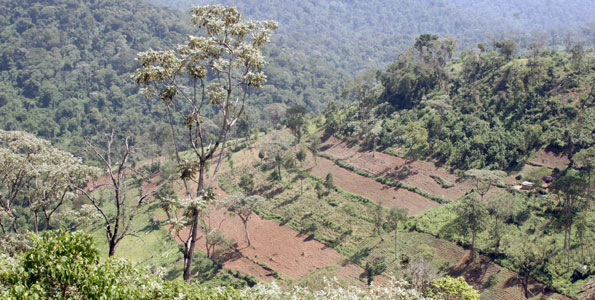Tatianah Kiptoo, editorial@alleastafrica.com
NAIROBI – Scientists in Kenya have developed a new technique that uses satellite images and maps to monitor land use and forest cover.
The technique that was developed by scientists at the World Agroforestry center in Nairobi, pioneered an approach that uses physical and geographic data to show patterns linked to land use and forest cover change on a yearly basis.
“What’s important about the new approach is that the maps consist of an array of both physical and human geographic data to explain changes,” says researcher at World Agroforestry center, Dr Michael Marshall in a report posted on a European Geo-science website, Earth System Dynamics.
The technique will help legislators understand environment while designing land management strategies.
“As seen in the Kenyan case, the growing demand for food in Africa must be met with effective land tenure reform. By mapping changes in our environment continuously over long time periods, farmers and policymakers can understand underlying mechanisms and explore opportunities for reform,” Marshall states in the report.
The technique can also be used in combination with large-scale climate models to understand the impact of changes in vegetation in East Africa in relation to climate change in other regions of Africa.
In Kenya, the technology, which has proofed a success, will be used to map changes in agriculture and natural vegetation with information from over a 30-year period.
“Using a series of aerial photographic surveys which can also be used to distinguish specific vegetation and freely available spatial data such as rainfall, the scientists were able to construct maps of this change on a yearly basis without extensive and costly field visits typically used when mapping change,” Marshal notes.
Understanding land use and cover change is, he notes, is important because they both affect how land responds to the environment.
Changes in improper land use, according to the report by researchers, often leads to habitat loss, low productivity, emission of greenhouse gasses as well as altering the climate.
Decline in forest cover, the scientist, the scientists’ state is as a result of population growth, weak institutions among other social and ecological factors.
“To understand the drivers as well as the effects of deforestation, geographers use various tools that map the extent and density of tree cover. These techniques include aerial photos, satellite images and other spatial data through time,” the report notes.
Deforestation often occur as a result of agriculture and logging, situations that has adverse impacts on the world’s climate.
“The absence of trees therefore contributes to global warming because trees store huge amounts of carbon that would otherwise be in the air trapping heat,” reads the report
The scientist at the World Agroforestry Centre will be further explore the use of uses demographic data, such as population density.
“Our research in Kenya shows that the most important predictor of land use and cover change was population density. Kenya is part of the East African Horn region. Like many other countries in Africa, its population is growing rapidly and is largely devoted to rain-fed subsistence agriculture and pastoralism,” he notes.
The researchers noted that during the research, the decline in natural vegetation was directly influenced by high population where forests are cleared to create room for farming and grazing land.
“Climate predictors, such as rainfall and air temperature, were also correlated with the conversion of natural vegetation to agriculture, but less so compared to population density,” says Marshall.



